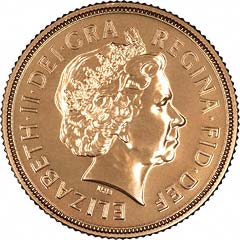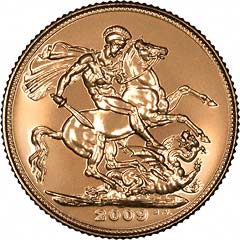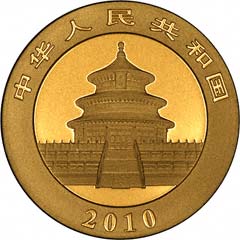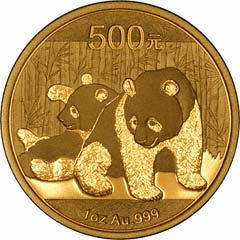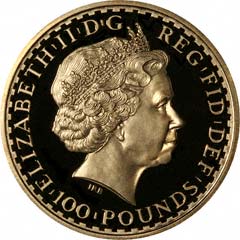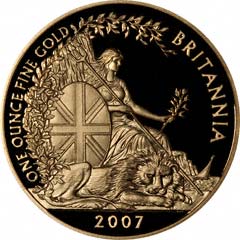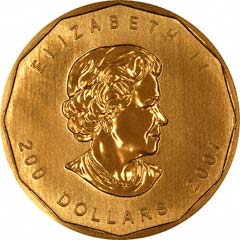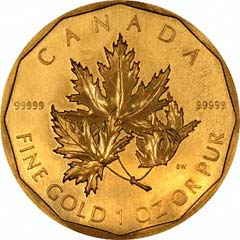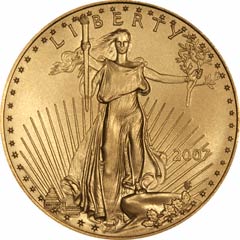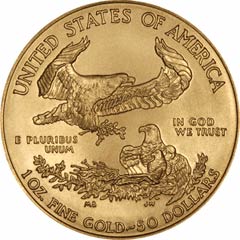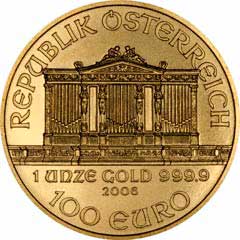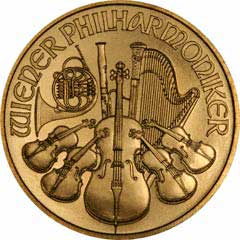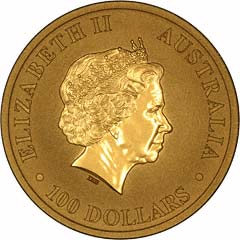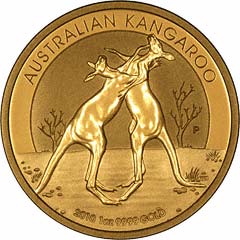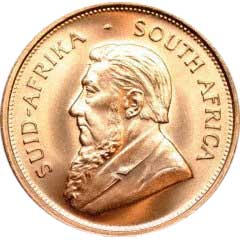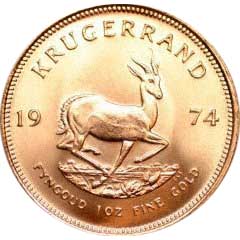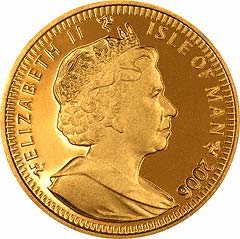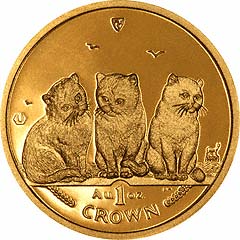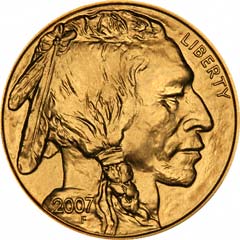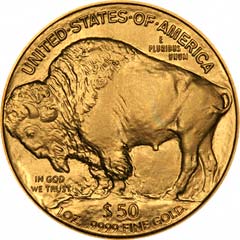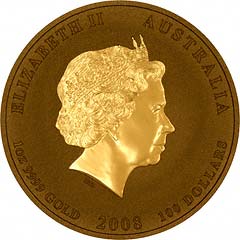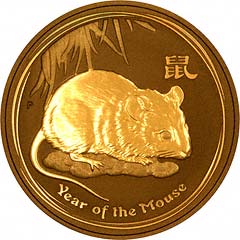
22 Carat Gold Coins versus 24 Carat Gold Coins
Almost daily we find ourselves telling people that Krugerrands contain exactly the same amount of gold as Canadian maples. They seem to think that because Krugerrands are twenty two carat gold compared with twenty four carat for maples, that the Krugerrands contain less gold. All "One Ounce" gold bullion coins contain the same amount of gold. Any 22 carat gold coins contain 1/11 of an ounce of "base" metal, usually copper, but sometimes with the addition of a small amount of silver.
Why 22 Carat
Over thousands of years gold coins have been made to many different standards of purity. By the 19th century, most countries struck gold at either .9166 (22 carat) or .900 fine, depending on whether their coinage systems were influenced more by British (22 carat), or continental European standards (.900). The USA for example used to use the continental .900 fineness in its gold coins, whereas Canada used 22 carat.Twenty two carat has been found over millennia to provide a good alloy for gold coins. It is almost impervious to chemical attack and tarnishing, yet hard enough to withstand decades of wear and tear. Nine hundred gold is very close to 22 carat, and shares its properties.
By the way, it is a popular misconception that the more base metal the harder the alloy. The fact is that alloying creates controllable properties, so that alloys can be softened by annealing and hardened by working or quenching.
Why 24 Carat
Why not? The original purpose of gold coins was to circulate as everyday money, therefore they needed to be durable. Coins intended purely for storage as bullion coins do not have this requirement, therefore there is no reason against using pure gold. We should explain that in practice it is difficult to refine any substance to 100% purity, therefore 24 carat gold is a slight approximation. It is more accurate to refer to it as .9999 gold.There is a possible advantage that fine gold does not need to be alloyed, therefore removing several production stages, and pure gold coins can therefore be produced more cheaply than alloyed ones. Add to this the fact that some people, given a choice may have preference for one type over another, then the introduction of variety is desirable. It may also be that Canada wished to appeal to a different sector of the market when it decided to issue its famous gold maple leaves in pure gold rather than 22 carat.
Which are Which?
British Britannias , American Eagles , and South African Krugerrands are all made of 22 carat gold.Austrian Philharmonikers , Australian Nuggets , Canadian Maples , and Chinese Pandas are all made of 24 carat gold.
"Real" Coins
In addition British Sovereigns are made of 22 carat gold, and although they predate the concept of a one ounce coin, are an excellent, but often overlooked alternative. Many other, older gold coins were made of .900 gold including French and Swiss , but this does not reduce their value to the investor.These older coins were originally intended for circulation, and they were made in sizes and weights which suited their original purposes many years ago. Sovereigns were first issued in 1489, and have retained their current format since 1817. There are advantages and disadvantages in buying these "real" coins instead of modern bullion coins .
Minimum .900
The minimum accepted standard for gold coins to be treated as VAT free investment gold in the EU is 900 parts per thousand, equivalent to 21.60 carats.Can't Decide Which To Buy?
Look at ourComplete One Ounce Bullion 7 Coin Collection
Complete Half Ounce Bullion 7 Coin Collection
Complete Quarter Ounce Bullion 7 Coin Collection
Complete Tenth Ounce Bullion 7 Coin Collection
Complete 28 Coin Bullion Collection
2007 Canadian 99999 Pure Gold $200 Maples
The Royal Canadian Mint are proud of their highly refined (99.999% pure) gold production, and have now issued a new design of 2007 One Ounce Fine Gold Maple, with a face value of $200 compared with $50. Complete in combined capsule, display card and certificate.We do not recommend paying an extra premium for investment gold, but these are attractive coins, and worth having one in a collection of bullion coins.
British Gold Britannias
Canadian Maples
American Eagles
Austrian Philharmonikers
Australian Nuggets
South African Krugerrands
Manx Cat Crowns
US Fine Gold Buffalos
Australian Lunar Calendar Series
"Tax Free Gold" website is owned and operated by Chard (1964) Limited
32 - 36 Harrowside, Blackpool, Lancashire, FY4 1RJ, England. Telephone (44) - (0) 1253 - 343081; Fax 408058;
E-mail: Contact Us The URL for our main page is: taxfreegold.co.uk
32 - 36 Harrowside, Blackpool, Lancashire, FY4 1RJ, England. Telephone (44) - (0) 1253 - 343081; Fax 408058;
E-mail: Contact Us The URL for our main page is: taxfreegold.co.uk

